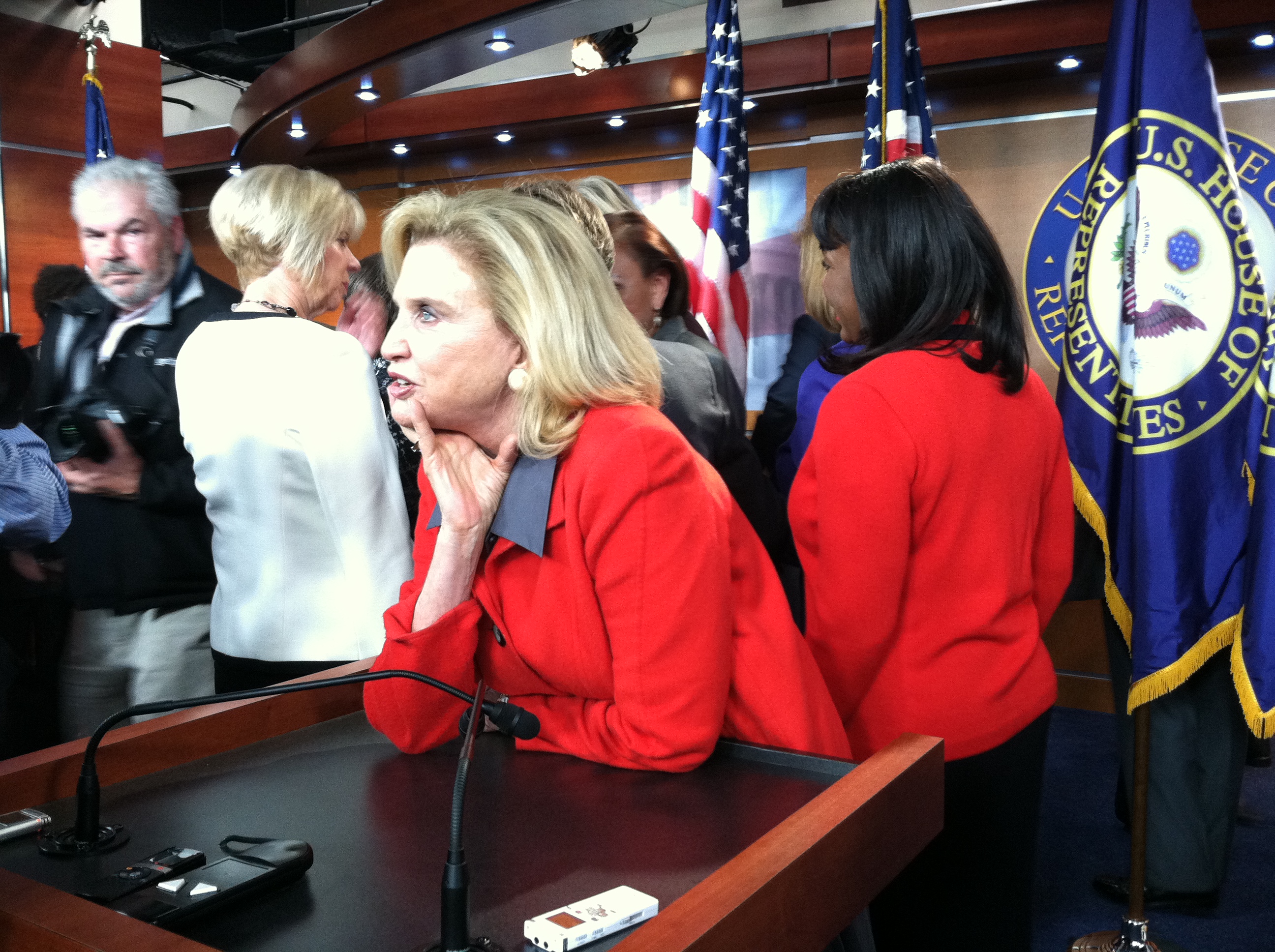WASHINGTON — Flanked by 60 of her female peers, Nancy Pelosi made it official on Wednesday: The California Democrat will continue as House Minority Leader for the 113th Congress.
Pelosi, who was the first female Speaker of the House of Representatives, said that she feels an obligation to other women, and that the work of better gender representation in politics is not done.
“I made the decision in order to continue work empowering women and to make sure the Affordable Care Act is enforced,” Pelosi said. “To work with women to say ‘we know’ one way to increase the involvement of women in the government and politics — we must reduce the role of money and increase the level of civility.”
According to the Center for American Women in Politics, a record number of women will serve in the 113th Congress. Women will make up 18 percent of the House of Representatives and Senate combined, up just one percent from the session prior.

Rep. Carolyn Maloney, D-N.Y., who has served for 19 years, was among the women who stood with House Minority Leader Nancy Pelosi when she called for more women in Congress on Wednesday.
“I’m not satisfied, we want more,” Pelosi said, in reference to the number of women in Congress.
One expert says the reason more women are not in office is simply because they are not running.
“They’re less likely to be recruited, they’re less likely to think they’re qualified and they’re more likely to rely on their self doubts than men and self select out of emerging for races,” said Jennifer Lawless, professor of government and politics at American University and once a congressional candidate herself. “We don’t need to convince voters, we need to convince candidates.”
Between both parties, 20 women will represent their constituents in the Senate and 78 will serve in the House. In the House and Senate combined, Democratic women outnumber Republican women by 3 to 1.
In May, House Republican women formally announced the creation of a women’s committee that would be led by Representative Mary Bono Mack, R – Calif.. Mack has since lost her race and will not be returning next session. Her press officer said Wednesday that there is no update on the status of the committee and who will lead in Mack’s absence. 20 Republican women will be returning to the House.
The House Democratic women’s caucus will have 58 women members in the new Congress. The number could rise to 59 with one race not yet called.
Pelosi was the first woman Speaker of the House when the Democrats had majority from 2006 – 2010. She has served in Congress for 25 years and is 72 years old.
Lawless says that while examples of federal-level leaders like Pelosi are good for women candidates, the cultivation of new female candidates lies at the state level.
“It really comes down to who the key political figures are in that state and who they’re recruiting and whether there’s a concerted effort to include women in the ranks,” Lawless said.
